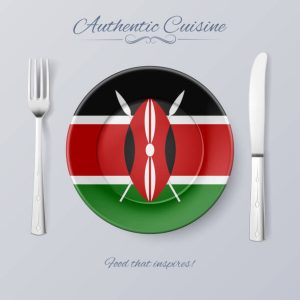 Nutrition and diet trends play a pivotal role in shaping the health and wellness landscape of Kenya, blending traditional dietary practices with modern influences. From staple foods to emerging superfoods, Kenyan culture embraces a diverse array of culinary traditions that contribute to overall well-being.
Nutrition and diet trends play a pivotal role in shaping the health and wellness landscape of Kenya, blending traditional dietary practices with modern influences. From staple foods to emerging superfoods, Kenyan culture embraces a diverse array of culinary traditions that contribute to overall well-being.
Trends in Nutrition and Diet
 1. Embrace of Traditional Foods:
1. Embrace of Traditional Foods:
Kenyan cuisine is rich in diversity, drawing inspiration from various ethnic groups and regions across the country. Staple foods such as maize, millet, sorghum, and cassava form the foundation of many traditional dishes. These nutrient-rich staples are often complemented with indigenous vegetables, legumes, and lean proteins, creating balanced meals that reflect local tastes and preferences.
2. Shift Towards Healthier Options:

In recent years, there has been a growing awareness of the importance of healthy eating habits among Kenyan consumers. Many individuals and families are incorporating more fruits, vegetables, whole grains, and lean proteins into their diets while reducing the consumption of processed foods, sugar, and unhealthy fats. This shift towards healthier options reflects a broader trend towards wellness and preventive healthcare.
3. Influence of Urbanization and Globalization:
Urbanization and globalization have influenced dietary patterns in Kenya, introducing new foods, cuisines, and eating habits. Fast food chains, convenience stores, and supermarkets offer a wide range of processed and imported foods, presenting both opportunities and challenges for nutrition and health. While convenience foods may offer convenience, traditional dietary practices emphasize the importance of fresh, locally sourced ingredients for optimal nutrition.
4. Promoting Nutritional Education:
 Nutritional education plays a crucial role in promoting healthy eating habits and empowering individuals to make informed dietary choices. Schools, healthcare facilities, and community organizations are implementing programs to raise awareness about nutrition, food safety, and the importance of a balanced diet. By equipping individuals with the knowledge and skills to make healthy choices, nutritional education fosters a culture of wellness and vitality.
Nutritional education plays a crucial role in promoting healthy eating habits and empowering individuals to make informed dietary choices. Schools, healthcare facilities, and community organizations are implementing programs to raise awareness about nutrition, food safety, and the importance of a balanced diet. By equipping individuals with the knowledge and skills to make healthy choices, nutritional education fosters a culture of wellness and vitality.
In conclusion, nutrition and diet trends in Kenya reflect a dynamic interplay between tradition, modernity, and globalization. By embracing healthy eating habits, promoting nutritional education, and celebrating the richness of Kenyan cuisine, communities across the country are fostering wellness and vitality for generations to come.






